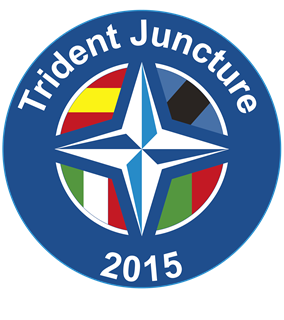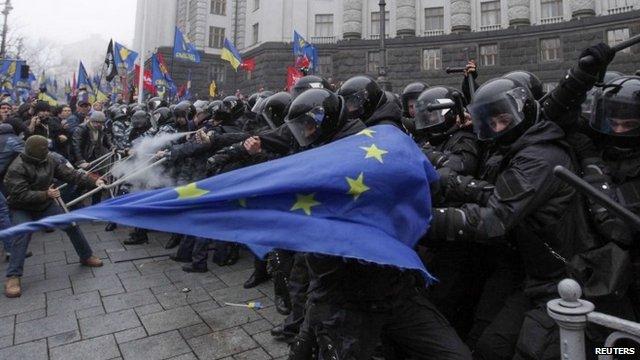Between ten and thirteen thousand people have reportedly been killed in the internal strife that has engulfed Syria, and there is still no end in sight. Everyone talks about the situation, but no one has a clear idea of exactly how the violence will be stopped. Much ink has been spilled on the topic, and amidst all the discussion the bad guys have seemingly been identified: one is, of course, Assad, and the other, surprisingly or not, is Russia.
As Russian Foreign Minister Sergei Lavrov admitted in an editorial that appeared in The Huffington Post a few days ago, “Unfortunately, qualified and honest analysis of developments in Syria and their potential consequences is still in short supply.” This is true. All the major media outlets are producing black-and-white views of the situation, omitting the nuances and erasing shades of grey. We are told that Russia is backing Assad’s regime for two reasons – one political and one economic.
[captionpix align=”left” theme=”elegant” width=”320″ imgsrc=” http://newsyour.ru/upload/88-3554485.jpg
” captiontext=”Lavrov tries to reason with the West.”]
The political reason revolves around influence in the region. Russia is said to be afraid of losing its last solid ally in the Middle East. Syria has had good relations with the Soviet Union and later Russia for decades, hosting its only naval base outside the former Soviet Union – at Tartus. It is also Russia’s only base in the Mediterranean; while it is “little more than a pier, fuel tanks and some barracks”, it is a strategic fuelling spot which saves the Russian navy from going back to its ports in the Black Sea and passing through the Turkish straits. Losing Tartus would be a major blow to Russia.
Another political reason is the question of prestige and reputation. Russia was furious at what had unfolded in Libya. It had abstained from voting on the UN Security Council Resolution 1973, which authorized a no-fly zone over Libya, but the vaguely phrased resolution lead from the “protection of civilians” to a full-blown regime change with an ugly ending. There is unrest in Libya to this day, months after the old dictator was killed; moreover, this unrest has spread into Libya’s neighbouring countries and has seriously destabilized the region, with Mali being hit the hardest. After Qaddafi’s fall, a lot of armed combatants found their way from Libya to Mali and caused a coup d’état in March. This is not what Russia had intended. Of course it is not what NATO had intended either, but the fact that NATO was involved in an operation which bore such undesirable results has seriously displeased Russia. Observers are saying that it will not stand for another intervention by the West, headed by NATO and the US, anywhere in the world, particularly in such a strategically important region. The Middle East is where fortunes and reputations are made, and Russia wants to be seen as a power that can stand on equal footing with the US in questions of global importance.
As for Moscow’s economic motives, it is no secret that Syria is a major client of the Russian weapons industry. It is a multi-billion dollar business and Russia stands to lose a lot of money if weapons transfers are disrupted. Thus, Moscow has not stopped arms exports to Syria since the uprisings began, although the Russian government adamantly insists that it does not sell anything that could be used against civilians. Stating that no new contracts have been signed and that current weapons exports are simply fulfilling old agreements, Russia has concentrated its sales on special-purpose heavy weaponry, such as surface-to-air missiles, that could not be used in a civil war. Of course, such weapons could easily be used against a potential NATO or other international force that attempts to intervene via a no-fly zone or otherwise, as demonstrated recently by shooting down of a Turkish jet.
With critical interests at stake, Russia has, according to the rhetoric of the West, positioned itself as the primary obstacle to ending the bloodshed in Syria, and the gatekeeper to any Western intervention. Despite this, neither Russia nor the West has put forward a plan on how to deal with the warring factions in the country and how to stabilize a post-Assad Syria. It is not so much Russia who is stalling, but the international community all together.
Russia’s guiding principle is not to support Assad, but rather to ensure stability. Clearly Assad is failing to provide that, but there is no reason to believe that his departure is imminent or will improve any conditions. Syria will remain a fragmented, multi-confessional country with an embittered population. Furthermore, reasons cited to explain Russia’s reluctance to join the discourse of the West do not stand up to scrutiny. It is not very likely that Russia will lose its foothold in Syria if Assad leaves the picture. There are a lot of established connections: many Syrians were educated in the Soviet Union, including many in the military. In addition to the heavy Russian investment in Syrian infrastructure and oil and gas exploration projects, which totaled $19.4 billion in 2009 alone, there is also the significant arms trade. According to the Stockholm Peace Research Institute (SIPRI), almost 100% of the Syrian arms imports come from Russia. Between 2007 and 2011, 78% of Syrian arms imports were directly from Russia; 17% were from Belarus, a Russian client-state that sells Russian-made weapons; the remaining 5% came from Iran, which also mainly sells Syria Russian arms. Iran is a close ally of Syria, and its government is also facing the wrath of the West. Nothing would be more in the interests of the West today than the fall of both these regimes. By standing behind them, Russia is upholding a delicate political structure in an attempt to keep and strengthen its own foothold in the Middle East. However, who is to say that the new Syrian government will be anti-Russian? No one can predict who will be in power, although it is likely that any incoming regime will be more anti-Western than anti-Russian.
When it comes to business interests, it is even easier to argue that Russia will retain its position. Business is business, and if a deal is reached, it is sealed. There is no business more unscrupulous and less principled than arms trade.
Russia is not a neutral observer in the current situation, but it is not the bad guy either. Russia’s interests are not the petty questions of weapons sales or feeling insulted over Libya. Those are factors that have been highlighted, but only because the deeper reasons are so consequential that they are difficult to discern at once.
Russia is afraid of the potential mass instability that can swallow up the entire Middle East and reverberate far beyond, if Syria falls apart. These concerns are compounded by the potential of Western military intervention. Past cases of civil wars and interventions such as Bosnia, Iraq, Afghanistan, and Libya have not born encouraging results. How Russia’s neighbours – Turkey with its Kurds, who are one of the minorities in Syria, and Iran, a Shiite state in a turmoil of its own – will be affected by future developments in this crisis is unpredictable, but Russia clearly cannot welcome this wave of instability sweeping through the neighbourhood. Obviously there is still a current wave of instability in the region right now; it is just not as sweeping as it could become if a foreign intervention stages a regime change.
The international community, including Russia, agrees that what is going on is deplorable. But Russia’s stance is often passed off as supporting the government of Bashar al-Assad, which is not the case. Russia’s mistake is in claiming that Assad’s departure cannot be a precondition for the resolution of the Syrian crisis. That may have been the case a year ago, but not after thousands of deaths. If anything, Russia can be called, ironically, too open-minded, for asking the international community to consider all possibilities. Assad is simply not a credible option anymore. However, Russia should not be demonized for wanting to prevent a crisis that threatens to unravel in the most unpredictable and dangerous manner. When a situation is this complicated, old loyalties and Cold War mentality need not cloud clear thinking, which is desperately needed to resolve the Syrian quagmire.




